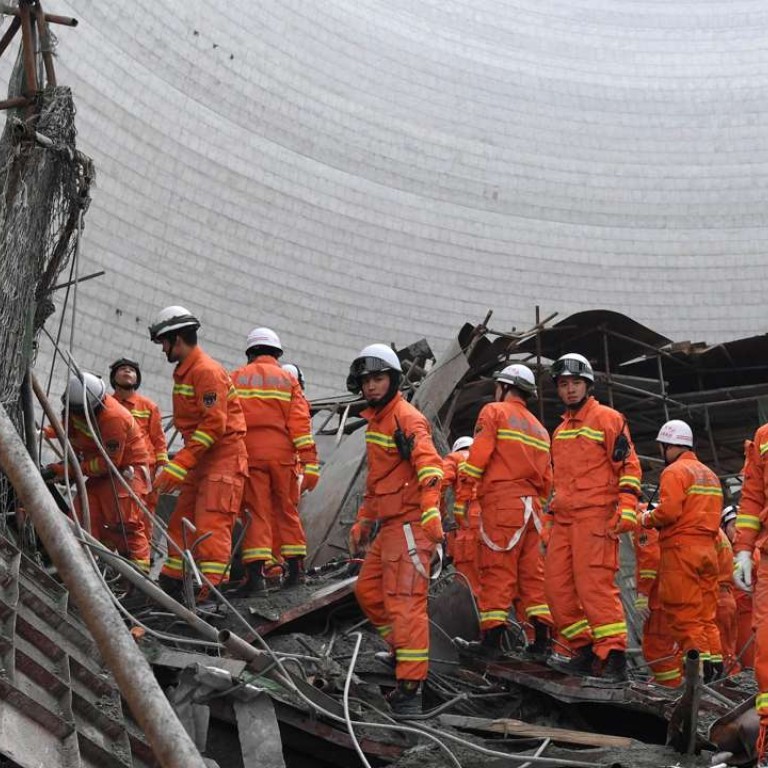
Lost lives in the workplace must be counted as a cost
Fatal accidents are, sadly, all too common in China and are the result of placing development goals ahead of safety
It remains to be seen how high the blame will go, but the political careers of some local officials are at risk. This has happened before without any apparent deterrent effect on safety violations. Xinhua says more than 66,000 people died in workplace accidents last year – an average of 181 a day. After big accidents, state leaders send the right message, ordering inquiries, punishment for culpable people and redoubled safety checks to improve the country’s appalling record – to no avail.
Not long after becoming president, in 2013, Xi Jinping (習近平) rallied officials to address the nation’s “deep-rooted” workplace safety issues after a rash of serious accidents. However, given that perceived economic underperformance is negative for career advancement, local officials still see the risk of a really serious accident from bending rules and cutting corners as worth taking.
Linking career advancement to workplace safety is the right approach. But it is not enough to mete out punishments after serious accidents have claimed yet more lives. As well as economic achievements, assessment of officials for promotion should include work-safety records, including the number of accidents and compliance with enforcement of rules. That would call for a radical upgrade of the workplace inspection regime. More bureaucracy may be the last thing China needs. But it could more than pay for itself with savings in the socio-economic costs of industrial accidents. Laws are meaningless without proper enforcement. Only by taking such steps can China rein in the unacceptable human cost of its development.

